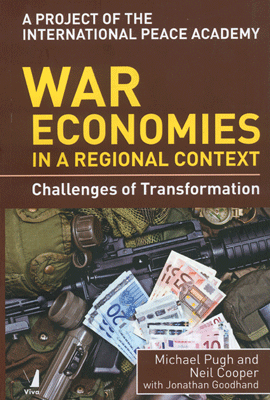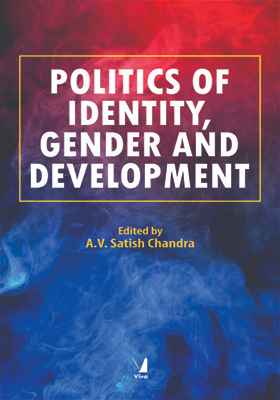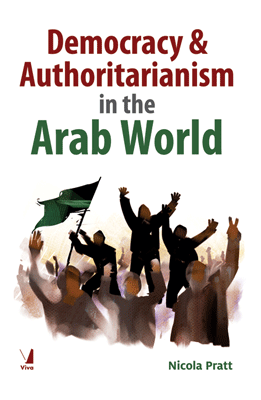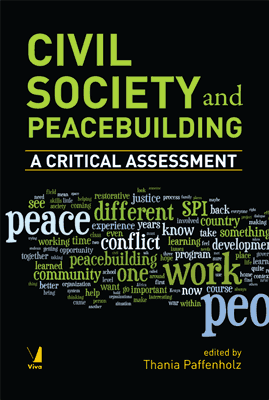War Economies in a Regional Context
War Economies in a Regional Context
Challenges of Transformation (A Project of the International Peace Academy)
₹985.50 ₹1,095.00 Save: ₹109.50 (10%)
Go to cart-
Out of Stock
ISBN: 9789386385888
Bind: Paperback
Year: 2017
Pages: 290
Size: 5.75 x 9 Inch
Publisher: Lynne Rienner Publishers, Inc.
Published in India by: Viva Books
Exclusive Distributors: Viva Books
Sales Territory: India, Nepal, Pakistan, Bangladesh, Sri Lanka
The book starts with the introduction of "Approaches to the Political Economy of Civil Wars". It mainly focuses on the economies of the regional dimensions of civil war. The three case studies on civil war in Afghanistan, Sierra Leone and Bosnia examine the nature of war economy and the factors influencing it and its global impact.
A chapter on controlling war economies has been devoted mainly to bring out the concept of "Liberal Peace" to the fore.
The book concludes with an optimistic note on the new agenda for transforming war economies for sustainable peace.
Confronting the corrosive influence that war economies typically have on the prospects for peace in war-torn societies, this study critically analyzes current policy responses and offers a thought-provoking foundation for the development of more effective peacebuilding strategies.
The authors focus on the role played by trade in precipitating and fueling conflict, with particular emphasis on the regional dynamics that are created by war economies. Their analysis highlights the darker side of the commitment to deregulation, open markets, and the expansion of trade routes that are key features of globalization.
In each of three case studies—Sierra Leone, Afghanistan, and Bosnia—they examine the nature of the war economy, the regional networks developed to support it, its legacies, and the impact of initiatives to transform it. That transformation, they argue, a process central to the transition from violent conflict to sustainable peace, can best be achieved through approaches that recognize critical regional factors.
Target Audience:
Academicians and students of International Relations and Political Science.
Contents:
List of Illustrations
Foreword, David M. Malone
Acknowledgments
Chapter 1: Introduction: Approaches to the Political Economy of Civil Wars
Chapter 2: The Regional Dimensions of Civil War Economies
Chapter 3: Afghanistan in Central Asia
Chapter 4: Sierra Leone in West Africa
Chapter 5: Bosnia and Herzegovina in Southeast Europe
Chapter 6: Controlling War Economies: A Critique of the ?Liberal Peace?
Chapter 7: Conclusion: Toward a New Agenda for Transforming War Economies
List of Acronyms
Selected Bibliography
Index
About the Book
About the Authors:
Michael Pugh is director of the Plymouth International Studies Centre at the University of Plymouth (UK). His numerous publications include Regeneration of War-torn Societies and The United Nations and Regional Security: Europe and Beyond, and he is editor of the journal International Peacekeeping.
Neil Cooper is principal lecturer in international relations at the University of Plymouth. He has published extensively on the arms trade and postconflict demilitarization.
Jonathan Goodhand is lecturer in development practice at the School of Oriental and African Studies, University of London. He has worked with numerous NGOs, as well as the UK Department for International Development, in the areas of conflict analysis and prevention.







